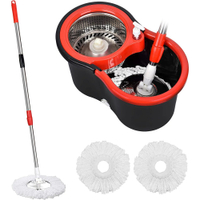How professional cleaners mop hardwood floors – to prevent warping and discoloration
Despite being hardwearing, hardwood is adverse to water. Here is how the professionals mop without causing damage
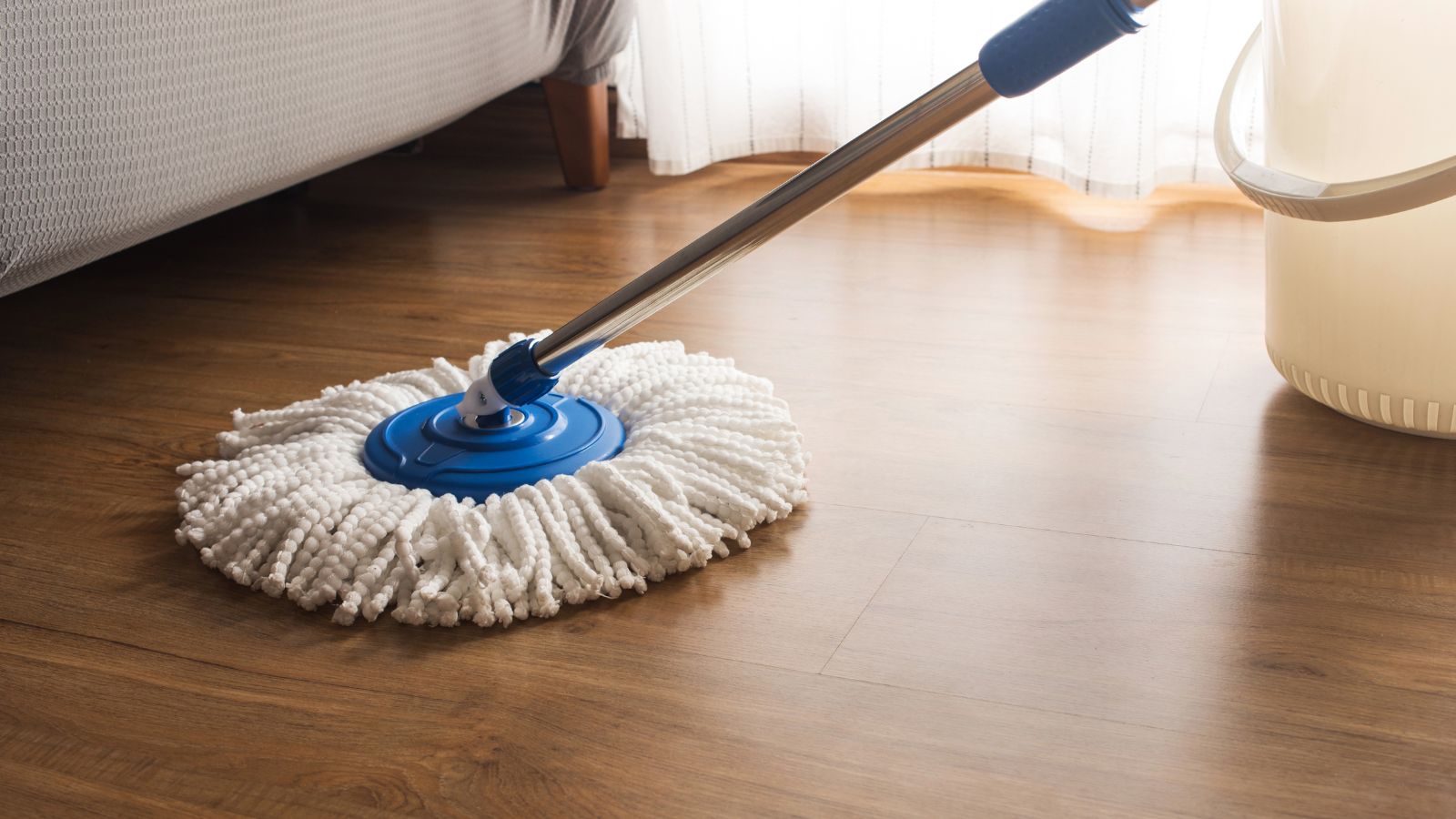

Hardwood floors are an excellent, long-lasting option for any home, as they're both hardwearing and timeless. That being said, they can be tricky to keep clean – especially as that they often do not mix well with lots of water.
Because mopping with soap and water is the usual go-to for cleaning any hard flooring, it can be hard to know how to approach cleaning hardwood floors in high-traffic spots like kitchens and entryways. However, the good news is that some water is just fine. Experts assure me that it is all about using as little water as possible and employing the correct drying techniques afterwards.
Here, professional cleaners reveal the best way to mop hardwood floors so you can prevent warping and discoloration.
The best way to mop hardwood floors
Even sealed wood floors are susceptible to water damage, as it only takes the smallest amount of standing water to ‘seep into the seams and gaps between wood planks, causing swelling and warping,’ Karina Toner, cleaning expert at Spekless Cleaning, explains.
‘It is important to promptly wipe up any spills or excess water during the cleaning process to protect the wood and maintain its integrity,’ she advises.
If you are looking to clean a floor without streaks, then these five professional cleaning tips should be your go-tos.

Karina is the Operations Manager at Spekless Cleaning, a trusted maid service based in Washington D.C. The team has over five years of experience providing top-quality cleaning services for both residential and commercial clients. Karina oversees every aspect of the business, ensuring that every client gets the same top-notch service and a spotless clean every time.
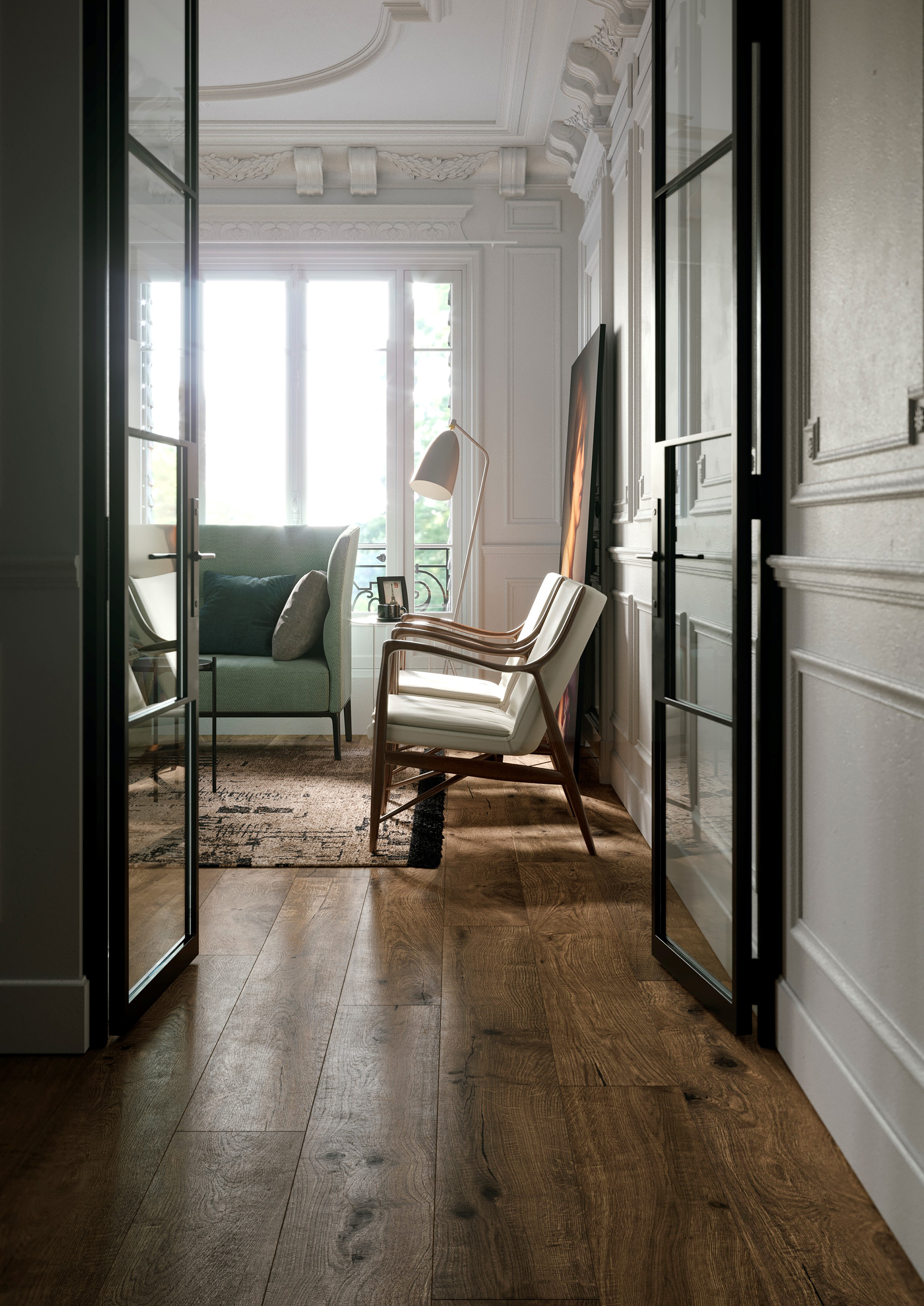
1. Choose the right cleaning product
'Given that moisture is the enemy in this cleaning situation, it is important to select the right cleaning product for your floor finish to prevent causing unnecessary stress and damage to the wood,' begins Ryan Knoll, cleaning expert and founder of Tidy Casa cleaning services.
'Not all wood floor cleaners are created alike,' he continues. 'If the floor is oiled hardwood, for instance, then you need to select products specifically designed for that finish,' he says.
‘However, most hardwood floors are sealed (usually with urethane or lacquer) and aren't as sensitive to different cleaning solutions,’ he adds. ‘Avoid cleaning products that promise a high-gloss finish, as they tend to leave a residue that builds up over time. I highly recommend products like Pledge Gentle Wood Floor Cleaner, or Zep Hardwood and Laminate Floor Cleaner, both available at Walmart.’
2. Vacuum or sweep first
Before applying any wet solution, you should sweep or vacuum the area first, being careful with your vacuum cleaner to make sure you don’t scratch the surface with a beater brush or the wheels or head. It is a good idea to remove any rugs or furniture in the way before vacuuming in case any debris falls from them during the move.
3. Dip the mop in cleaner, and wring out thoroughly
'If you want to avoid having to refinish wood floors or restore hardwood floors, then it is important to use the right mop and the right amount of liquid when it comes to actually mopping,' says Ryan Knoll, cleaning expert. 'Use soft-headed mops without any metal wires to prevent scratching and dip the mop into the bucket of solution. Always wring the mop out before touching it to the floor,' Ryan continues. Your mop should be 'damp, but not overly wet.’
‘The goal here is to leave a trail of dampness without creating any puddles.’
Spinning Mop and Bucket | $34.95 at Walmart
A spinning mop and bucket is ideal for working on hardwood floors, as it allows you to easily wring out excess water. This prevents swamping the floor and causing water damage.
4. Spot treat stubborn marks
If you notice any stubborn marks while mopping then they may need spot treatment with a microfiber cloth, explains Muffetta Krueger, cleaning expert and owner of Mufetta’s Domestic Assistants.
‘For small spills or localized stains, dampen a microfiber cloth or sponge with a mild wood floor cleaner specifically formulated for your floor type. Gently blot the affected area, avoiding excessive moisture,’ she explains. ‘Always follow the manufacturer's instructions when using any cleaning product.’
5. Dry the floor completely
Drying the floor completely after mopping is the final important step when mopping hardwood floors to prevent water stains and warping. You can either use a clean, dry mop head for this, or an old clean kitchen towel to buff away any water. Done properly, you will not have to remove water stains from wood, and it should only take you a few minutes.
You may also want to use a dehumidifier in the area after drying to help quickly take away any excess moisture left behind. This is not necessary but is a good tip if you want peace of mind.
FAQs
How often should you mop hardwood floors?
You should aim to clean and mop your hardwood floors once a week in high-traffic areas, and a little less frequently in spots that are not walked on so often. This will help to avoid a build-up of grease and grime that can affect the look of your flooring over time and makes them easier to maintain. Just be sure to only use a damp (not wet) mop, consider a dedicated wood floor cleaner, and dry thoroughly afterward to prevent waterlogging with frequent cleaning.
How to clean hardwood floors without a mop?
If you do not have a mop to hand when cleaning hardwood floors, then you can use an old clean towel to wipe down the floor surfaces or use dedicated hardwood floor cleaning wipes in the case of stubborn marks. After cleaning, you can use another old, clean towel to buff the floors dry to produce a shine and remove any excess water before it has a chance to soak into the wood grain.
The best way to mop hardwood floors is, ultimately, to avoid having to wet the surface as much as possible, use proper cleaners and dry it thoroughly afterwards when you do.
The secret to keeping wood floors looking their best lies in regular maintenance to preserve their beauty and longevity, adds cleaning expert Karina Toner. ‘This includes routine sweeping or vacuuming to remove loose dirt and dust, using mats at entryways to trap dirt and prevent it from being tracked onto the floor, and promptly addressing spills to prevent potential damage. Then you can limit your mopping altogether.’
Sign up to the Homes & Gardens newsletter
Design expertise in your inbox – from inspiring decorating ideas and beautiful celebrity homes to practical gardening advice and shopping round-ups.

Chiana has been at Homes & Gardens for two years and is our resident 'queen' of non-toxic living. She spends most of her time producing content for the Solved section of the website, helping readers get the most out of their homes through clever decluttering, cleaning, and tidying tips. She was named one of Fixr's top home improvement journalists in 2024.
-
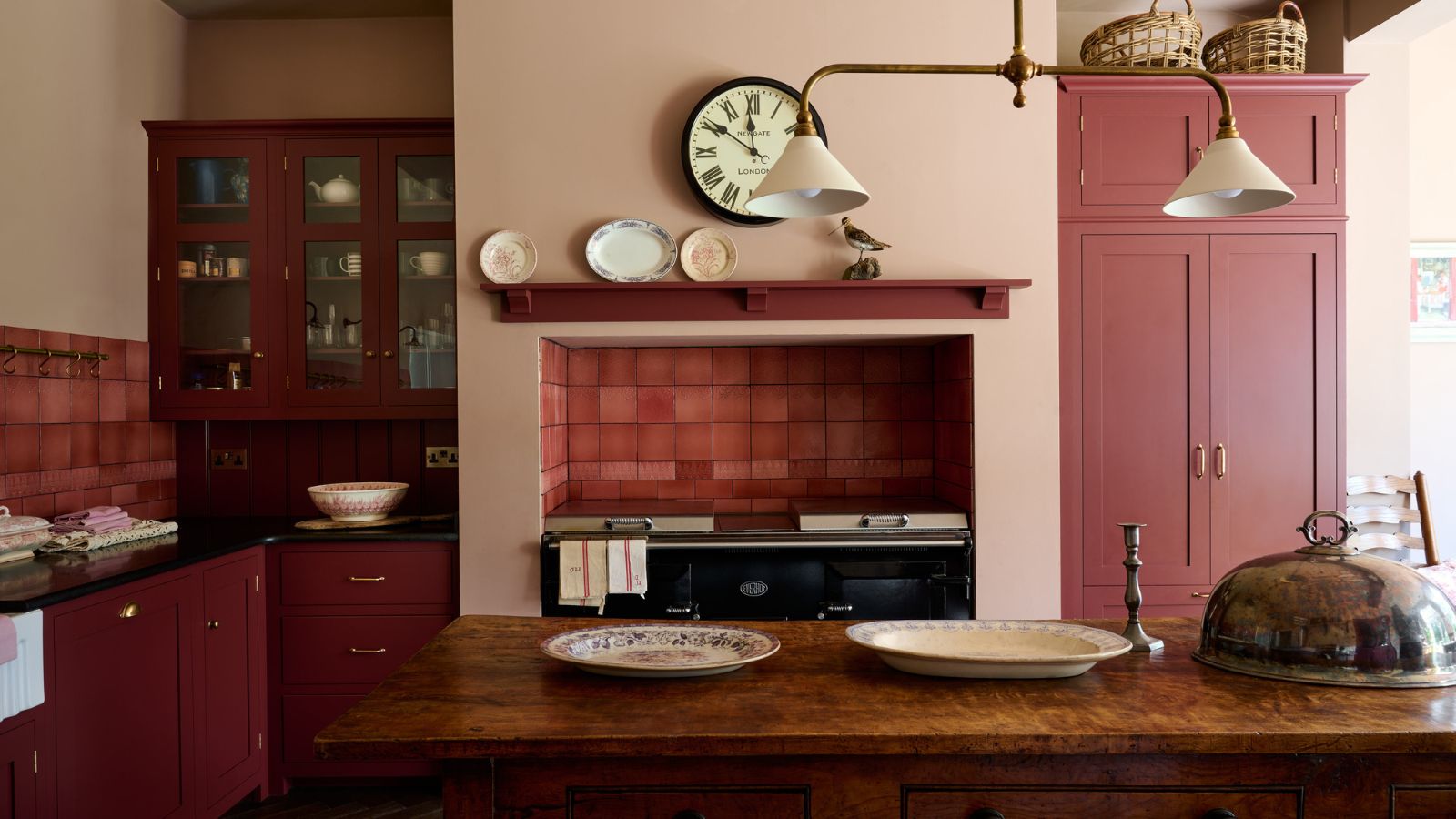 Everyone is obsessed with vintage tiles right now – bring the nostalgic charm of this classic design feature into your home with our 5 design ideas
Everyone is obsessed with vintage tiles right now – bring the nostalgic charm of this classic design feature into your home with our 5 design ideasHonor the past with our favorite ways to decorate with vintage tiles, as suggested by interior design experts
By Eleanor Richardson Published
-
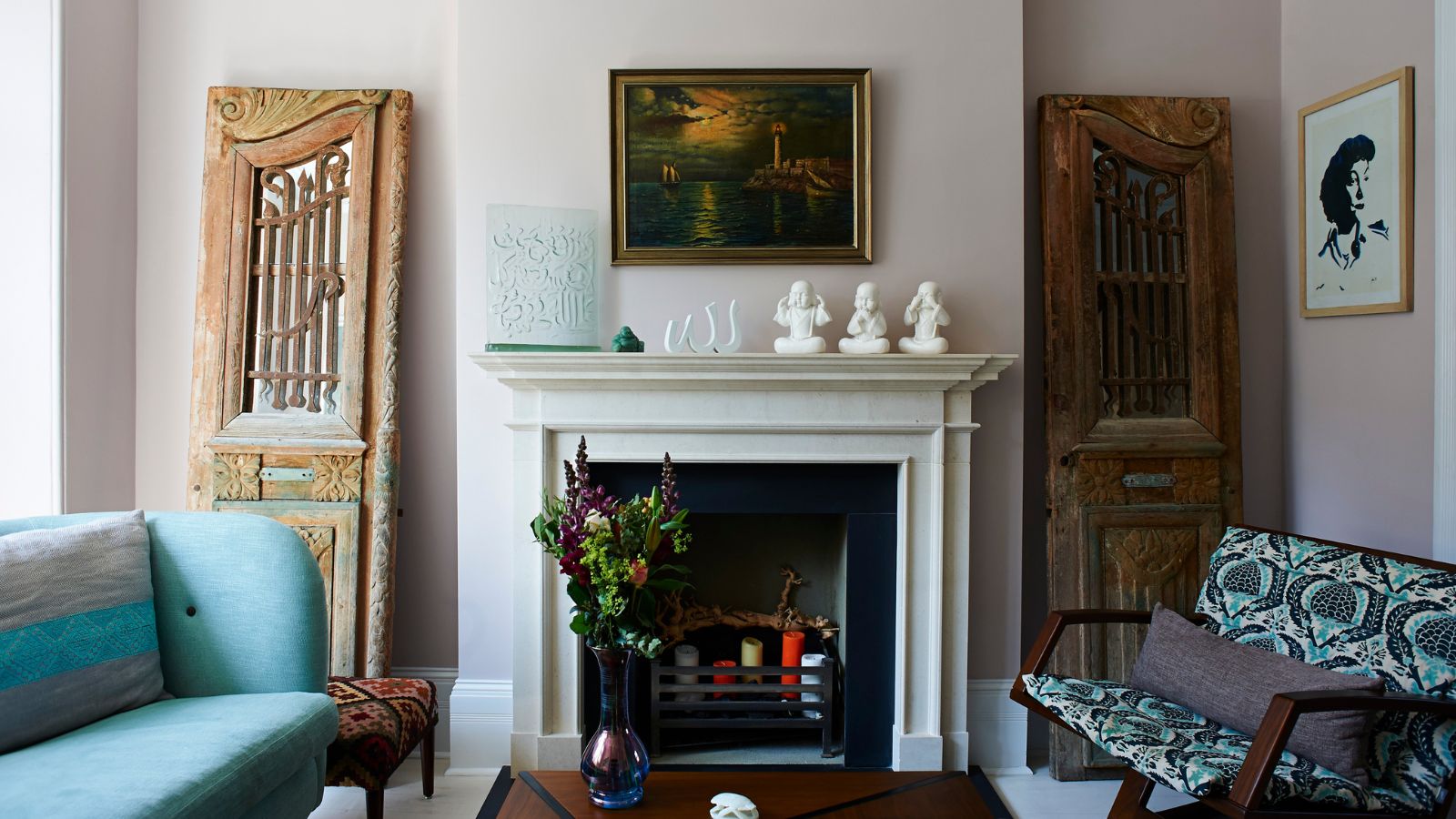 'It's a fast reset button' – using the 1, 2 ,3 ,4, 5 decluttering method cleared my persistent mess in seconds
'It's a fast reset button' – using the 1, 2 ,3 ,4, 5 decluttering method cleared my persistent mess in secondsIt's easy, effective and so quick to do
By Ottilie Blackhall Published
